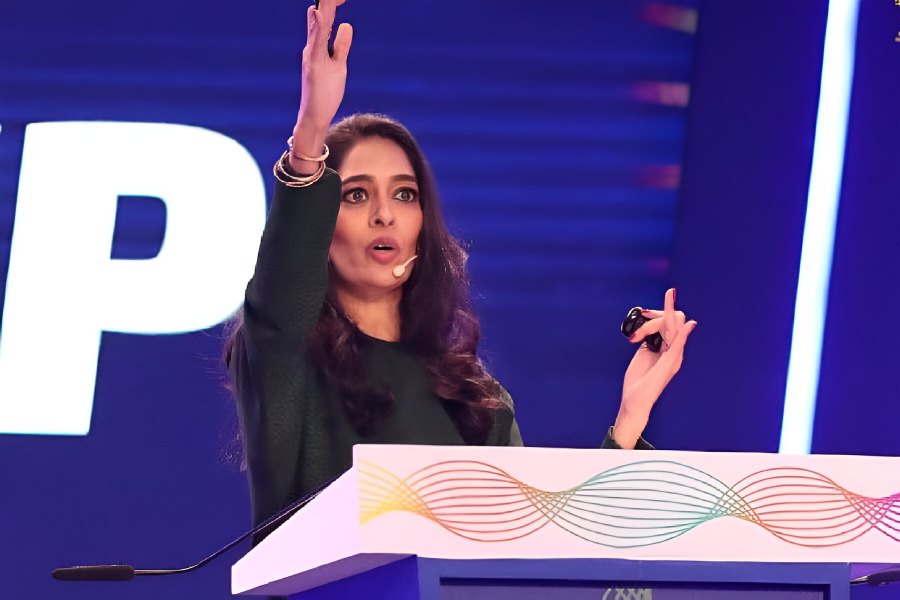A Rajya Sabha member on Monday alleged that the qualifying score in the national medical entrance test NEET had been kept low deliberately to create a large pool of successful candidates, brightening the chances of private colleges securing students able to pay their high fees.
Trinamul member Mohd Nadimul Haque argued in the House that this large pool of qualified candidates — and the consequent larger numbers of successful rich candidates — hurt the relatively better students from low-income families. They lost out in the competition for high-fee private college seats and were forced to seek an MBBS degree abroad.
After thousands of Indian medical students got trapped in war-torn Ukraine, many doctors had emphasised that it’s the lack of enough government MBBS seats and the high fees charged by private colleges in India that compel Indian medical aspirants to enrol abroad.
“The qualifying marks for the NEET are kept low at 19 per cent to expand the pool of students who can afford (to pay) fees as high as Rs 1.25 crore to Rs 1.5 crore (for the five-year MBBS course),” Haque said during Zero Hour.
“This acts as a filter, forcing poorer but meritorious students to seek education abroad, following which they are required to appear in the Foreign Medical Graduation Examination (FMGE) to practise medicine in India.”
Pass percentages in the FMGE have been notoriously low – just above 20 per cent – with many Indian doctors alleging a ploy by authorities to help the private medical colleges by discouraging Indians from studying MBBS abroad.
According to data with the National Testing Agency (NTA), students from the general category who scored 138 out of 720 (19 per cent) were declared qualified in the NEET in 2021. Those who scored 147 out of 720 (20.4 per cent) had qualified in 2020.
An NTA official said the National Medical Commission had decided the cut-off.
In 2021, about 8.7 lakh students (out of 15.42 lakh who took the test) were declared qualified, against 7.71 lakh (out of 13.65 lakh) the previous year — all for about 85,000 MBBS seats.
Haque told The Telegraph there was no logic behind qualifying 10 times as many candidates as MBBS seats. In the IITs, about 40,000 to 60,000 students are declared qualified in the JEE Advanced in different years against about 16,000 BTech seats, the ratio being less than 4:1 and sometimes less than 3:1.
“The relatively meritorious (but low-income) students are offered seats at private colleges but fail to pay the higher fees,” Haque told this newspaper.
“So, the offer then goes to students down the merit order till it reaches a candidate who can pay. So, less meritorious (but better off) students ultimately get admission to the private colleges.”
Dr G.R. Ravindranath, general secretary of the Doctors’ Association for Social Equality, an organisation working for greater inclusiveness in medical education, said that private medical colleges hold a “mop-up round” to fill seats that have remained vacant after the regular rounds of counselling.
“During the mop-up round, the private colleges offer seats to students irrespective of their ranking in the merit list. They do so to ensure the payment of high fees,” Ravindranath said.
“The government should not allow the colleges to go too far down the merit list in the mop-up round.”
In the Rajya Sabha, Haque said the average fee charged in India for an entire MBBS course was about Rs 14 lakh at government colleges and about (a government-approved) Rs 60-70 lakh at private colleges. This apart, for a proportion of seats that the government has now raised to 50 per cent, the private colleges can decide their own fees --- in effect, sell seats to the highest bidder.
Several Indian students have said they need to spend less — about Rs 40 lakh, including living costs – to earn an MBBS degree in foreign countries like Ukraine or China.
Nearly 18,000 Indian students, including about 15,000 medical students, were enrolled in Ukraine when the war broke out. Nearly 20,000 Indians are enrolled in MBBS courses in China, and about 15,000 in Russia.
Haque said the Ukraine conflict had highlighted some of the problems of the Indian medical education system.
He urged the government to take measures to revamp the medical education infrastructure and cater to the rising needs of the students (for more medical seats) and the public (for more doctors).
Kanakmedla Ravindrakumar (Telugu Desam Party), K.C. Venugopal (Congress), Amar Patnaik (BJD) and Santanu Sen (Trinamul) demanded that the students who have returned from Ukraine be accommodated in Indian institutions. The government is expected to issue a statement on the subject on Tuesday.











